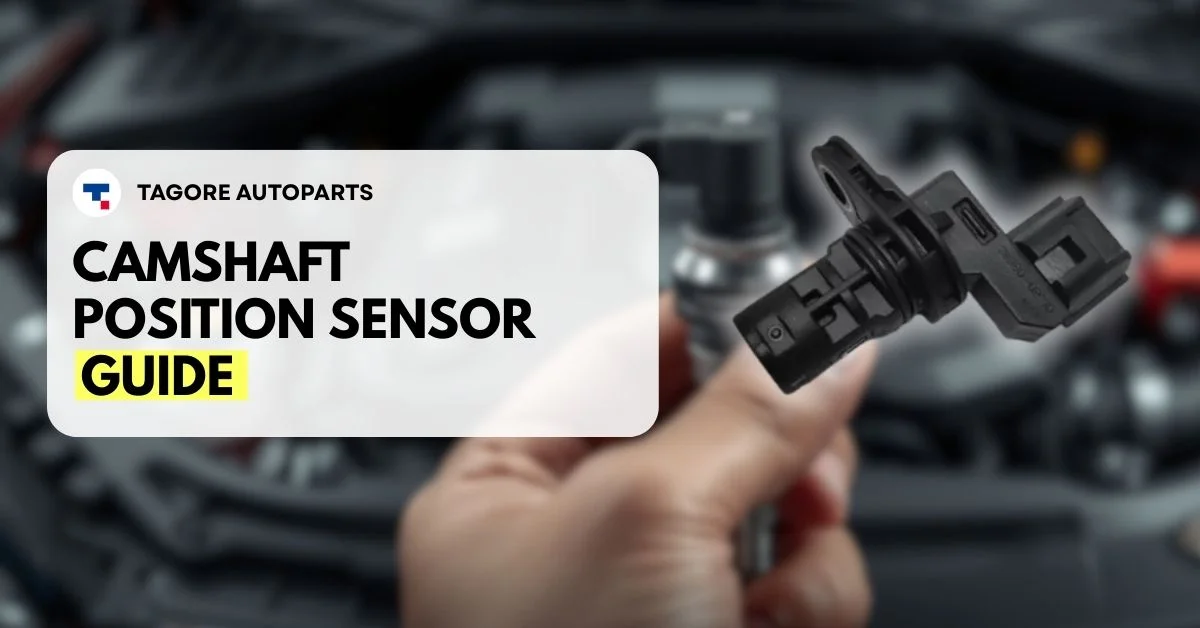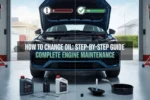Ignition coils represent one of the most critical components in modern vehicle engines, converting low-voltage electrical current from the battery into high-voltage sparks necessary for combustion. Ignition coils lie at the heart of your car’s engine, providing the electrical charge used to ignite the fuel inside each combustion chamber, thereby powering your car. When these essential components fail, drivers experience a range of performance issues that can significantly impact vehicle operation and safety.
Understanding ignition coil problems helps vehicle owners recognize symptoms early and take appropriate action before minor issues become major engine problems. Whether dealing with a single coil failure or multiple coil issues, proper diagnosis and timely replacement ensure optimal engine performance and prevent costly secondary damage.
Understanding Ignition Coil Function
Modern vehicles typically use individual ignition coils for each cylinder, creating a more efficient and reliable ignition system compared to older distributor-based designs. These coils must generate thousands of volts to create the spark necessary for fuel combustion, making them subject to considerable electrical and thermal stress during operation.
The ignition system works in perfect harmony with other engine components, and coil failures can cascade into problems affecting fuel injection, exhaust systems, and overall engine performance. For vehicles experiencing severe ignition problems, Tagore Autoparts offers reliable replacement engines, including Honda Accord engine, Toyota Camry engine, and Ford F-150 engine solutions.
Common Ignition Coil Failure Symptoms
Recognizing the warning signs of ignition coil failure allows drivers to address problems before they worsen. The most common symptoms provide clear indicators that immediate attention is required.
| Symptom | Description | Severity Level |
|---|---|---|
| Engine Misfiring | Sputtering, jerking during acceleration | High |
| Check Engine Light | Dashboard warning illumination | Medium |
| Rough Idling | Unstable engine operation at idle | Medium |
| Poor Fuel Economy | Decreased miles per gallon | Medium |
| Hard Starting | Difficulty starting, especially cold | High |
| Power Loss | Reduced acceleration and performance | High |
| Exhaust Smoke | Blue or black smoke from the tailpipe | High |
Engine Misfiring and Performance Issues
Misfiring often sounds like the engine is sputtering and coughing, struggling to keep going. This occurs when the faulty coil fails to provide adequate voltage for proper fuel ignition, causing the affected cylinder to misfire or not fire at all.
An engine with a failing ignition coil will rapidly lose a portion of its power. This happens because the cylinder with the bad coil won’t be able to fire consistently. This power loss becomes particularly noticeable during acceleration, hill climbing, or when additional engine load is required.
Misfiring Impact on Engine Health
Continued operation with misfiring cylinders can cause significant damage to other engine components. Unburned fuel may wash oil from cylinder walls, leading to increased wear, while unburned fuel entering the exhaust system can damage catalytic converters and oxygen sensors.
Check Engine Light and Diagnostic Codes
One of the major common symptoms of a bad engine coil is an illuminated check engine light. This light illuminates when the onboard computer in your vehicle detects misfires and alerts you to a potential problem. Modern engine control systems can pinpoint which cylinder is misfiring, making diagnosis more precise.
Diagnostic Code Interpretation
When the check engine light illuminates due to ignition coil problems, specific diagnostic trouble codes help identify the affected cylinder. Common codes include P0300 (random misfire), P0301-P0312 (cylinder-specific misfires), and P0350-P0362 (ignition coil circuit faults).
For vehicles requiring extensive engine work or experiencing multiple system failures, consider quality replacement options from Tagore Autoparts, including Chevy Equinox engine, Honda Civic engine, or BMW B-58 engine alternatives.
Cold Weather Starting Problems
The symptoms include no combustion, the engine warning indicator comes on, a persistently stalling engine, poor drivability, difficult starting in cold weather conditions, and decreased fuel efficiency. Cold weather exacerbates ignition coil problems because the coils must work harder to generate sufficient voltage for ignition.
Temperature Effects on Coil Performance
Cold temperatures increase electrical resistance in ignition coils, requiring them to work harder to generate the necessary voltage. Failing coils that may function adequately in warm conditions often fail completely in cold weather, leaving drivers stranded.
Visual Inspection Steps
- Remove Engine Cover: Access ignition coils by removing plastic engine covers or air intake components
- Inspect Coil Boots: Look for cracks, carbon tracking, or oil contamination on rubber boots
- Check Coil Bodies: Examine coils for physical damage, cracks, or burn marks
- Inspect Wiring: Verify electrical connections are secure and corrosion-free
- Document Findings: Note any visible damage or wear patterns for reference
Electrical Testing Procedures
- Scan for Codes: Use OBD-II scanner to retrieve diagnostic trouble codes
- Test Primary Resistance: Measure resistance between coil primary terminals
- Check Secondary Resistance: Test resistance between primary and secondary circuits
- Swap Coils: Move the suspected bad coil to a different cylinder to confirm the diagnosis
- Clear Codes and Test Drive: Verify repair by clearing codes and road testing
Ignition Coil Replacement Process
Replacing ignition coils requires careful attention to proper procedures and torque specifications to ensure reliable operation and prevent damage to expensive engine components.
Tools and Materials Required
Essential tools include socket sets, torque wrench, dielectric grease, and appropriate safety equipment. Quality replacement coils should meet or exceed OEM specifications for reliable long-term performance.
Installation Best Practices
Always replace spark plugs when installing new ignition coils, as worn plugs can cause premature coil failure. Apply dielectric grease to coil boots to prevent moisture intrusion and ensure proper electrical connection.
Prevention and Maintenance Tips
Regular maintenance helps extend ignition coil life and prevents unexpected failures that can leave drivers stranded.
Spark Plug Replacement Schedule
Following manufacturer-recommended spark plug replacement intervals prevents excessive stress on ignition coils. Worn spark plugs require higher voltage to fire, causing coils to work harder and fail prematurely.
Engine Oil Maintenance
Clean engine oil prevents carbon buildup that can cause spark plug fouling and increased coil stress. Oil leaks onto ignition coils can cause insulation breakdown and electrical failures.
For engines with severe oil leak problems or extensive wear, consider replacement options from Tagore Autoparts including Toyota Tundra engine, Honda Pilot engine, or Ford Explorer engine solutions that provide reliable performance.
Cost Considerations and Replacement Options
Ignition coil replacement costs vary significantly based on vehicle make, model, and whether individual coils or complete sets require replacement. Premium coils typically offer better longevity and performance compared to economy alternatives.
OEM vs Aftermarket Coils
Original Equipment Manufacturer (OEM) coils provide guaranteed compatibility and performance but cost more than aftermarket alternatives. Quality aftermarket coils can provide excellent service at lower cost, but require careful selection to ensure proper specifications.
Impact on Fuel Economy and Emissions
Failed ignition coils significantly impact fuel economy and emissions performance. Decreased fuel efficiency occurs because misfiring cylinders waste fuel while remaining cylinders work harder to compensate for lost power.
Environmental Considerations
Vehicles with ignition coil problems often fail emissions tests due to increased hydrocarbon and carbon monoxide output from misfiring cylinders. Addressing coil problems quickly helps maintain emissions compliance and environmental responsibility.
Advanced Ignition System Problems
Some vehicles experience ignition coil problems due to underlying engine issues such as carbon buildup, fuel system problems, or engine management system faults. These root causes must be addressed to prevent repeated coil failures.
Engine Management System Integration
Modern ignition systems integrate closely with engine management computers, fuel injection systems, and emissions controls. Coil problems can sometimes indicate broader system issues requiring comprehensive diagnosis and repair.
For vehicles with complex engine problems or those requiring major repairs, Tagore Autoparts offers complete engine solutions, including K20 engine, 2JZ engine, and 5.3 LS engine options for various applications.
Transmission Considerations During Engine Repairs
Engine performance problems from failed ignition coils can sometimes mask transmission issues or cause additional stress on drivetrain components. When addressing major engine problems, consider evaluating transmission health as well.
Quality transmission options from Tagore Autoparts include Ford F150 transmission, Honda Accord transmission, Toyota Tacoma transmission, and Chevy Silverado transmission solutions for comprehensive drivetrain reliability.










